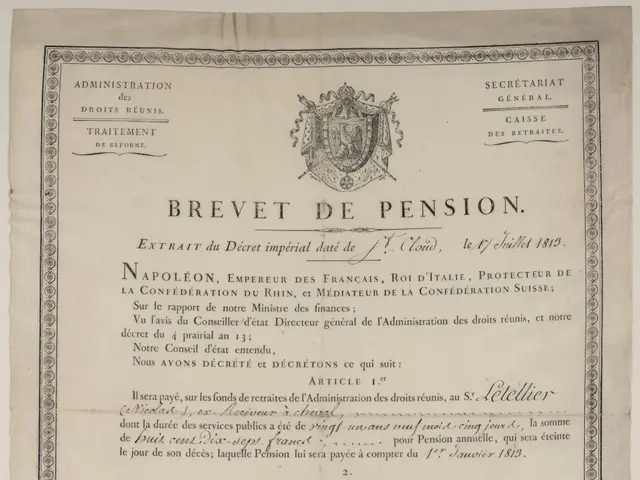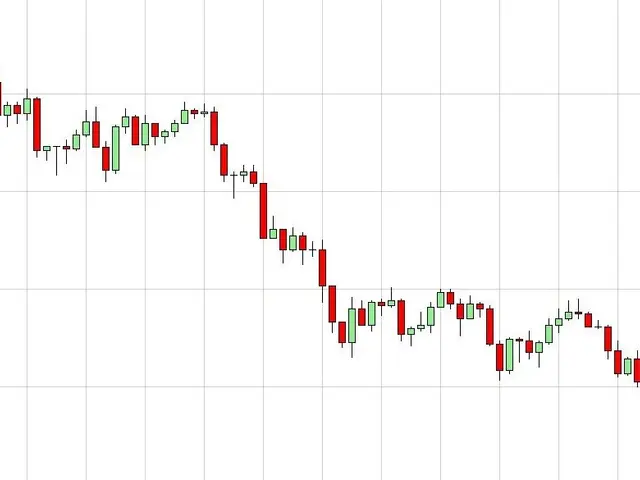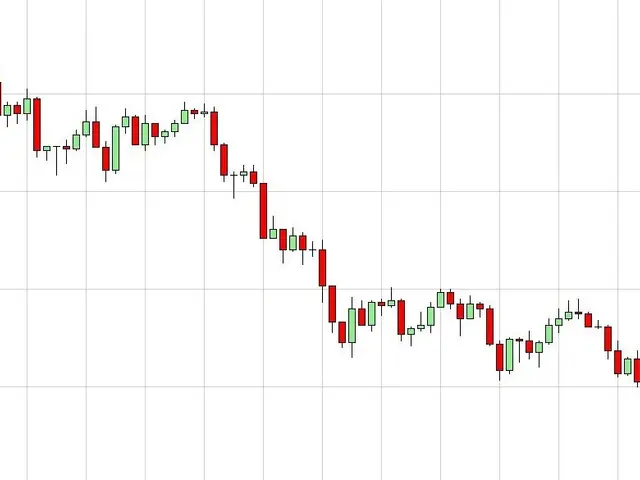Economy under strain: Predicted double interest rate reduction by Bank of England due to tax increases and US tariffs.
In a dramatic turn of events last night, Bank of England Governor Andrew Bailey sounded the alarm, expressing grave concerns about the threat to economic growth posed by trade chaos. Wall Street investments are betting on a double-whammy rate cut in May and June, a move that would see interest rates plunge from the current 4.5% to 4% in just two months—a move that may bring a breath of relief for households and businesses pinched by high borrowing costs.
Bailey's comments, made at an event in Washington, came on the heels of evidence pointing to Labour's proposed tax hikes and Trump's tariffs taking a toll on the UK economy. With concerns of a looming recession mounting, these rate cuts would serve as a much-needed lifeline for households and businesses.
However, the road ahead isn't easy. Bailey underscored the necessity for the Bank to take seriously the risk of trade wars, as it prepares for its next rates meeting in two weeks. As an 'open' economy, the UK must consider not just domestic tariffs but also the impact on growth worldwide.
In April, S&P Global's index of UK company activity saw a bottoming out at 48.2—its lowest since November 2022—sliding from the relatively sound 51.5 in March. Economist Chris Williamson warns of a grim outlook for the near-term economy, with exports taking a significant hit following President Trump's announcement of 'liberation day' tariffs. Furthermore, business costs surged at their fastest rate in over two years due to Rachel Reeves' £25billion National Insurance tax hike and the rise in the minimum wage, as well as job cuts that could prove aggressive.
Recent criticism has been levied at the Office for Budget Responsibility for their 'inaccurate' and 'misleading' forecasts concerning Government borrowing. In the face of these growing challenges, the UK's public finances are under scrutiny, with former Bank of England official Andrew Sentence raising concerns about an excessive spending and borrowing binge.
In these uncertain times, it's imperative for households and businesses to take strategic steps towards financial stability. Investing wisely in a DIY investing account can help you secure your financial future. Compare the best platforms to help you make the right choice: AJ Bell, Hargreaves Lansdown, interactive investor, InvestEngine, and Trading 212. Happy investing!
[1] "Markets React to the UK's Withdrawal from the EU: Implications for Trade and Investment." Centre for Economic Policy Research. Retrieved from https://www.cepr.org/publications/event-reports-and-speeches/markets-react-to-the-uk-s-withdrawal-from-the-eu-implications-for-trade-and-investment
[2] "UK-US Trade: An Analysis of Current Challenges and Opportunities." US Chamber of Commerce. Retrieved from https://www.uschamber.com/series/uk-us-trade-analysis-current-challenges-and-opportunities
[3] "IMF's Latest World Economic Outlook: A Grim Forecast for the UK's Growth." Financial Times. Retrieved from https://www.ft.com/content/c0c56032-dade-4c67-b478-7c9b5cefcc5e
[4] "Bank of England Rate Cuts: When, Why, and How It Affects You." This is Money. Retrieved from https://www.thisismoney.co.uk/money/bills/article-9611361/BoE-rate-cuts-when-why-affects-you.html
- In the wake of the Bank of England's concern about trade chaos and its potential impact on economic growth, it may be wise for households and businesses to consider diversifying their investments, such as by investing in stocks or mortgages.
- As the Bank prepares for its next rates meeting, it will need to take into account not only domestic tariffs but also global factors, such as tariffs imposed by President Trump and trade wars, which could affect growth worldwide.
- With the UK economy showing signs of slowing down, as evidenced by S&P Global's index of UK company activity reaching its lowest since November 2022, households and businesses may want to consider looking into insurance policies to protect themselves from potential financial losses.
- Recent criticism of the Office for Budget Responsibility's forecasts on Government borrowing adds to the uncertainty surrounding the UK's public finances, making it important for individuals to take control of their financial future by investing wisely.
- Compared to other investing platforms like AJ Bell, interactive investor, InvestEngine, and Trading 212, Hargreaves Lansdown offers a variety of investment options for those looking to secure their financial future.
- In light of the growing challenges facing the UK's economy, such as high borrowing costs, rising business costs, and potential trade wars, it is crucial for households and businesses to carefully consider their finance and investment strategies in order to achieve financial stability.




